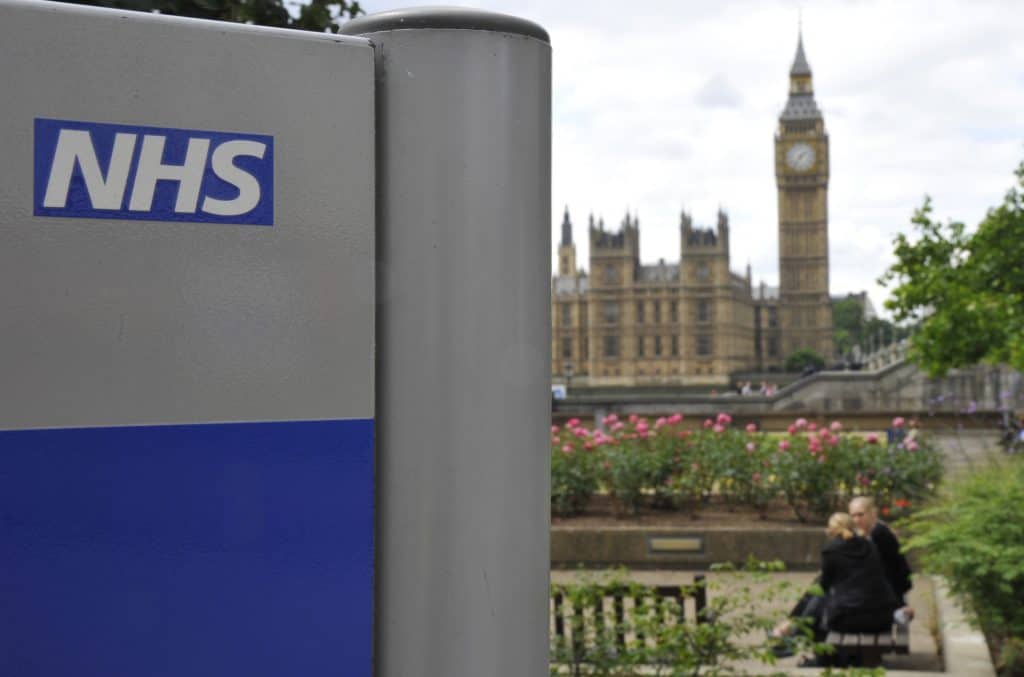
NHS reforms become law
pharmafile | March 28, 2012 | News story | Sales and Marketing | CCGs, Commissioning Board, Lansley, NHS, PCTs, QIPP, reforms
After 18 months of political wrangling and mass opposition, the government’s reform of the NHS in England has been passed into law.
The government’s Health and Social Care Act will remove the current Strategic Health Authorities and Primary Care Trusts in England, replacing them with GP-led clinical commissioning groups.
These will be responsible for commissioning around £60 billion of the health service’s annual budget.
The remaining £45 billion budget will be taken up by the new NHS Commissioning Board.
This is being led by the chief executive of the NHS Sir David Nicholson, and is currently running in ‘shadow’ form as the Board Authority.
The Board will operate as independent body from October 2012, on its way to complete control in April 2013.
The Commissioning Board will oversee the new clinical commissioning groups (CCGs), but will also take on responsibility to find £20 billion in NHS savings by 2015, the so-called ‘QIPP challenge’.
Becoming authorised
The CCGs are now in the middle of a long process to become authorised as statutory bodies, with a view to becoming independent legal bodies from next April.
To do this each CCG will need to pass a risk assessment to ensure that it can be financially stable, to minimise the risk of a Group going bust.
Each Group will also need to prove that it covers the right geographical area – some that have been deemed too small have already been forced to merge with neighbouring CCGs.
This includes the Red House Group CCG, which covers three branch surgeries and just 18,900 patients across South Hertfordshire, which was told it had to merge with the neighbouring Herts Valley CCG earlier this month.
This is shrinking the number of Groups across England, which are now estimated to number 227 in total.
The government says that emerging CCGs will need a considerable period of stability to become ready for authorisation, ideally a full 12 months.
It expects that the Board would be able to receive the earliest applications for establishment and authorisation from summer 2012.
Most of these groups are established, but are working under the authority of the outgoing PCT clusters.
They are already taking increasing responsibility for service redesign and delegated budgets from their local PCTs, and have a greater say in the new financial year’s budget, due to start from next month.
When a CCG becomes authorised, they will then take over complete responsibility from these bodies.
The government accepts that this transition will be tough for GPs, however, and has said that it expects a minority of PCT managers to stay on to advise the CCGs during their first few years.
But authorisation will not happen at the same time – it was initially planned that all CCGs would have to be ready by April 2013, but this mandate was amended last year.
The Groups can now take their time to become authorised and until they take full responsibility, the NHS Commissioning Board will undertake commissioning in their area through the organ of PCT clusters.
Working together after the controversy
The government has received much censure over its reforms, with key groups such as the British Medical Association, the Royal College of GPs, the British Medical Journal and the Royal College of Nursing, all voicing their opposition to the restructuring.
Clare Gerada, head of the Royal College of GPs, has been one of the most outspoken critics of the government, but has indicated she and her members will now work with the government.
In a letter to prime minister David Cameron, she wrote: “I am […] writing to you in the hope that we can find an acceptable way forward in which the Royal College of General Practitioners is able to work with the government towards the future stability of the NHS in England, and where we can help you find a way through the tensions to achieve a better health service for our patients.
“Though we do not agree on the need for, and potential impacts of, parts of the legislation, I assure you that our mutual concern remains providing and planning the best possible quality of care to our patients.”
The NHS Confederation, which represents managers in the NHS, echoed Gerada’s letter. Its chief executive Mike Farrar said it was “now time for real leadership to save the NHS,” adding: “If we fail to make the reforms work, it will be patients and the public who suffer”.
The health secretary Andrew Lansley, who is the architect of the reforms and has come under much criticism in recent months, will be relieved that the Bill has passed into law.
He said: “The Health and Social Care Act will deliver more power to clinicians, it will put patients at the heart of the NHS, and it will reduce the costs of bureaucracy.
“We now have an opportunity to secure clinical leadership to deliver improving quality and outcomes; better results for patients is our objective.”
But his handling of the reforms has brought his political career into the spotlight, with circulating rumours that he could be axed from his position in the Cabinet re-shuffle later this year.
Ben Adams
Related Content

Digital mental health technologies – a valuable tool in supporting people with depression and anxiety
The potential benefits of digital mental health technology for managing depression, anxiety and stress, together …

A community-first future: which pathways will get us there?
In the final Gateway to Local Adoption article of 2025, Visions4Health caught up with Julian …

The Pharma Files: with Dr Ewen Cameron, Chief Executive of West Suffolk NHS Foundation Trust
Pharmafile chats with Dr Ewen Cameron, Chief Executive of West Suffolk NHS Foundation Trust, about …





